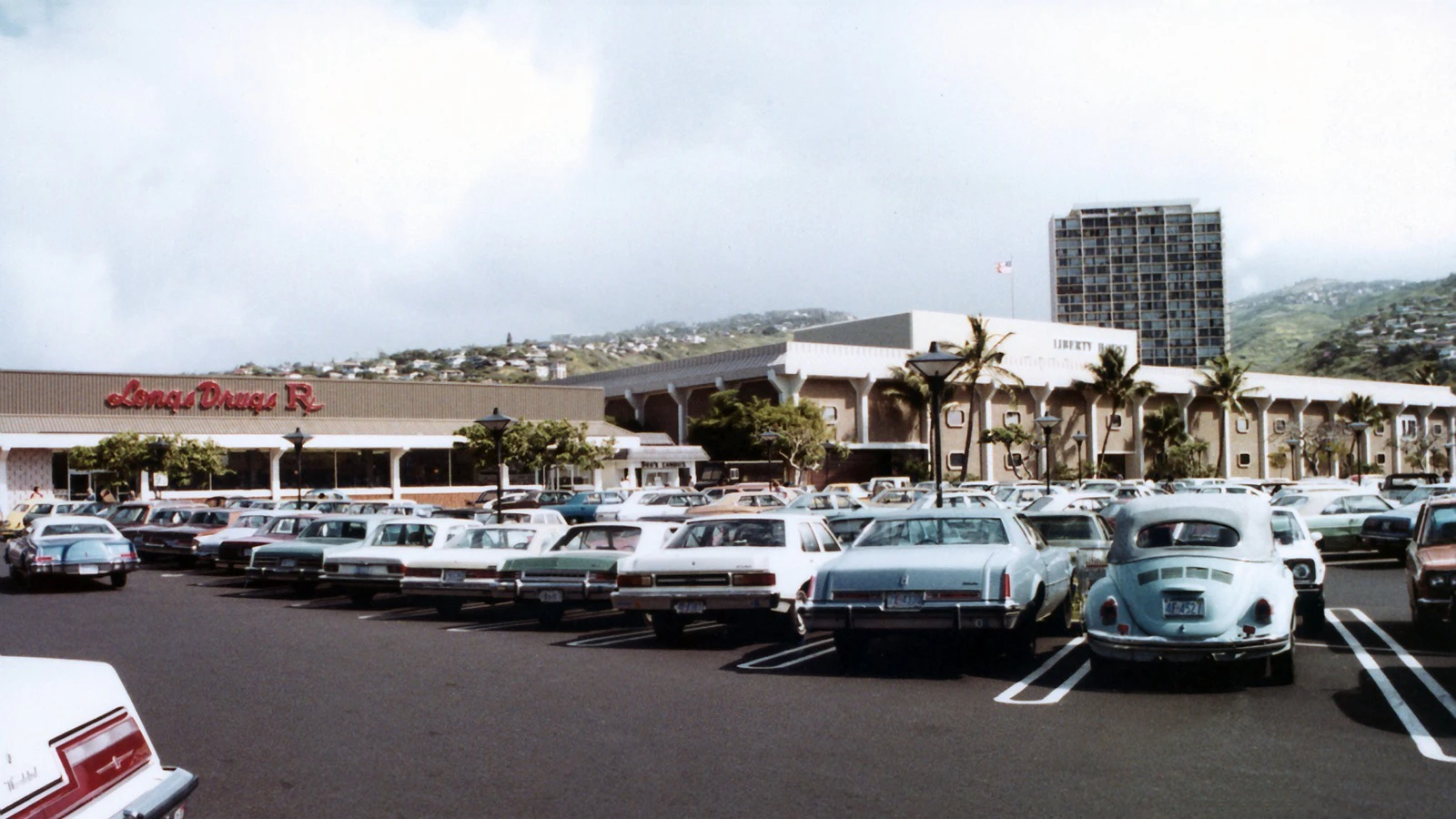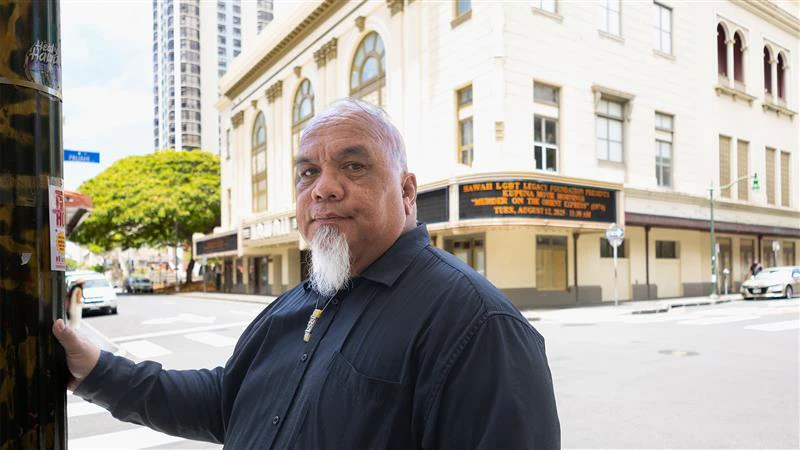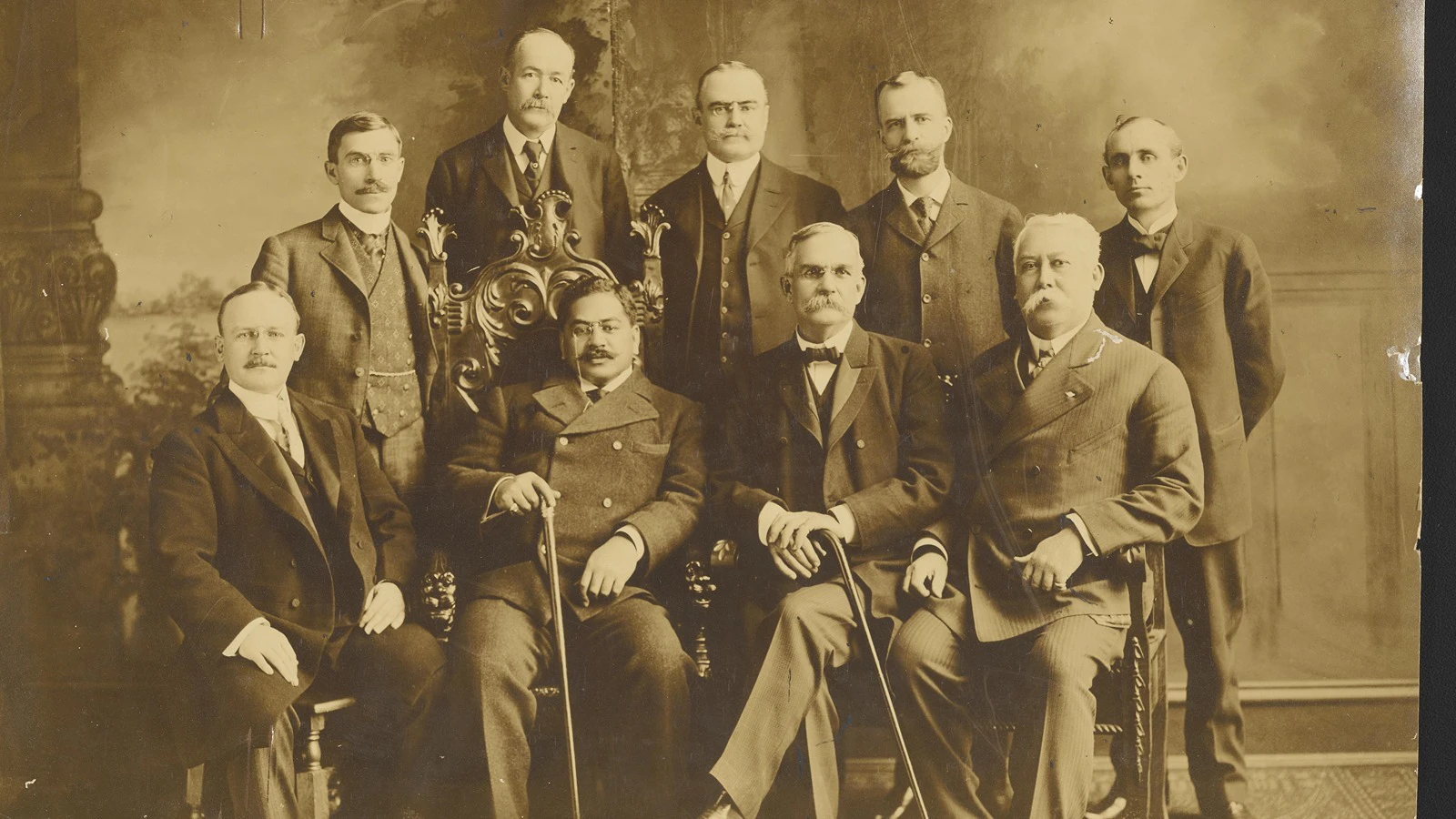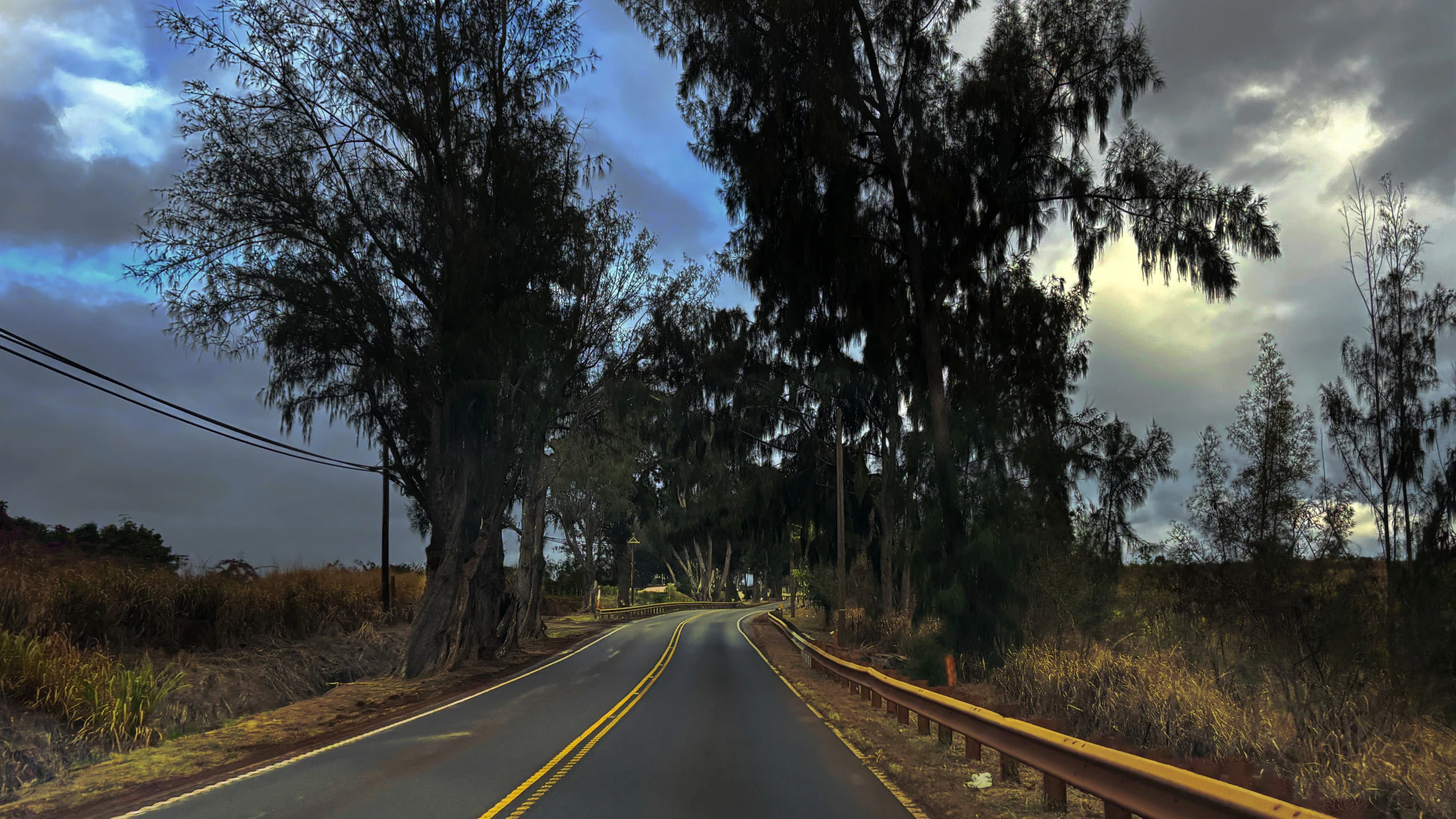High above Waimea Bay, on the slope of Pūpūkea, stands Pu‘u o Mahuka, O‘ahu’s largest heiau. Overlooking Waimea Bay, it is generally dated to the 1600s, with phases of construction and alteration over time.
Oral tradition holds that this sacred landscape was used for long-distance spiritual communication. One account relates that Ali‘i Kahahana asked his kahuna, the great seer, Ka‘opulupulu, to learn whether Kaua‘i would surrender to his invasion. Ka‘opulupulu first established Kūpopolo heiau near the shore of Waimea Bay. Presenting offerings and prayers, he sent his question to Kaua‘i, but received no answer. He then asked that a second heiau be built upon the ridge. When Pu‘u o Mahuka was completed, Ka‘opulupulu sent his message again from within the heiau. This time, he received an immediate reply. Kaua‘i wished for peace.
Given its position less than a hundred miles from the mouth of the Wailua River on Kaua‘i, many believe Pu‘u o Mahuka and Hikinaakalā, the heiau located there, were used for regular telepathic communication between kāhuna.
Pu‘u o Mahuka is also classified as a luakini heiau, where offerings, including animal and human sacrifice, were dedicated to Kū. However, one of the most famous sacrifices at this heiau was not a Hawaiian.
In 1792, Richard Hergest was in command of the Daedalus, a merchant ship hired by the British government, on his way to meet up with Captain Vancouver’s expedition at Nootka Sound in the Pacific Northwest. A young astronomer by the name of William Gooch caught a ride on the Daedalus to join Vancouver’s expedition.
Shortly before the Daedalus arrived in Waimea, O‘ahu, an English deserter had taken refuge on the Grace, an English West Indian ship, and convinced the captain to fire upon an O‘ahu ali‘i. The outcome caused Hawaiians in the area to be distrustful of British sailors.
Despite the advice of some Hawaiians on board the Daedalus when they arrived at Waimea, Hergest, Gooch, and a Portuguese seaman named Manuel went ashore. The men were quickly taken by Pāhūpū, warriors whose bodies were tattooed black on one side, from head to toe. Local accounts say the three were brought to Pu‘u o Mahuka heiau and sacrificed.
While the views nowadays are spectacular, the mana here is palpable. However, this is not a place for casual rituals like charging your crystals (yes, it has been done before). It is a sacred site where strict kapu once governed life and death, and where the memory of those sacrificed endures.
A luakini heiau like Pu‘u o Mahuka is dedicated to Kū, the god of war. This dedication involved strict protocol to the extreme. The entire heiau, all of its occupants, and anyone in the vicinity were under kapu. From marching in procession for gathering materials to sitting in rows for hours at a time, every aspect of the dedication had to be in perfect order as ‘oli (chants) were recited and prayers were offered. Any deviation or mistake in protocol would mean instant death for the rule breaker, who was then added to the ritual offering. People of the surrounding area had to hide or make themselves scarce. There could be no noise. Even children and dogs must be kept silent until the kapu was lifted. The seriousness of such an undertaking and the effect it had on every person naturally leaves lasting emotional and spiritual residue that can still be felt today.
A man named Ryan messaged me a few years ago to share his story about a strange incident that had happened to him, his wife, and their friend. They were circling the island one day, doing touristy things, and turned up Pūpūkea Road. He then turned onto the first side street he saw. The lane ended in a small parking area. They thought it was a park at first, but before the engine was even off, Ryan’s wife went still.
“Something’s not right,” she said.
Only then did they notice the sign, Pu‘u o Mahuka Heiau.
In the quiet daylight, the car radio clicked on by itself, and a voice sang, “Say what you need to say.”
Ryan said he started to panic, and he asked his wife what to do. His wife told them to pray, and they did so in silence. When he finished his prayer, Ryan eased the car into reverse and drove back to Pūpūkea Road. Since then, they have not returned. His wife said it felt like they did not belong, and they were grateful to leave as respectfully as they could.
In another, more recent account, Bill and his friend Tom drove up to Pūpūkea to photograph the winter surf at Waimea Bay. They spent a few hours at the overlook behind Pu‘u o Mahuka, taking pictures, talking story, relaxing. After sunset, with enough twilight left to make the short walk back, they packed up their things. The path was concrete, direct, and not very long. Yet as they walked toward the parking area, time seemed to stretch unnaturally. The darkness thickened, and they had to use the lights on their iPhones to see where they were going. With no cell service and their gear growing heavy, they stopped to rest.
Bill told Tom to wait while he scouted ahead. In less than two minutes, he reached the heiau, glanced to the right, and saw their car in the small parking lot. Relief swept over him. He turned and called for Tom, jogging back to the spot where they’d rested. But Tom was gone, and so were their things.
A terrible smell, like rotten eggs, rose sharply in the still air. Bill broke into a run, calling Tom’s name, now unsure which direction led to the parking area. Somewhere in the trees, he thought he heard drums, or maybe it was only his own heartbeat pounding in his ears. His foot caught and he tumbled to the ground. Something grabbed his ankle, he was sure of it, and then he felt like a person was sitting on his back. The sound of footsteps gathered around him, many feet moving in step, and the world narrowed until everything went black.
He woke to Tom shaking him. Tired of waiting, Tom had gone to find Bill and discovered him facedown on the path. He had managed to carry the camera equipment, but left the cooler and chairs back where they’d stopped. Together they hurried to the car, drove straight down the hill, and didn’t stop until they’d reached the Foodland parking lot. They noticed it was after 9 p.m., although sunset had been just before 7 p.m. They had been wandering for nearly two hours along a route that should have taken only minutes. They won’t say it was supernatural, only that it was wrong, and that they have no desire to repeat it.
“We don’t do drugs. We weren’t drinking. We just brought water and chips,” Bill said.
If someone found a cooler and a couple of chairs, Bill and Tom apologize. They didn’t mean to dump their things, but they were too scared to go back and try to retrieve them.
For the latest news of Hawai‘i, sign up here for our free Daily Edition newsletter!





